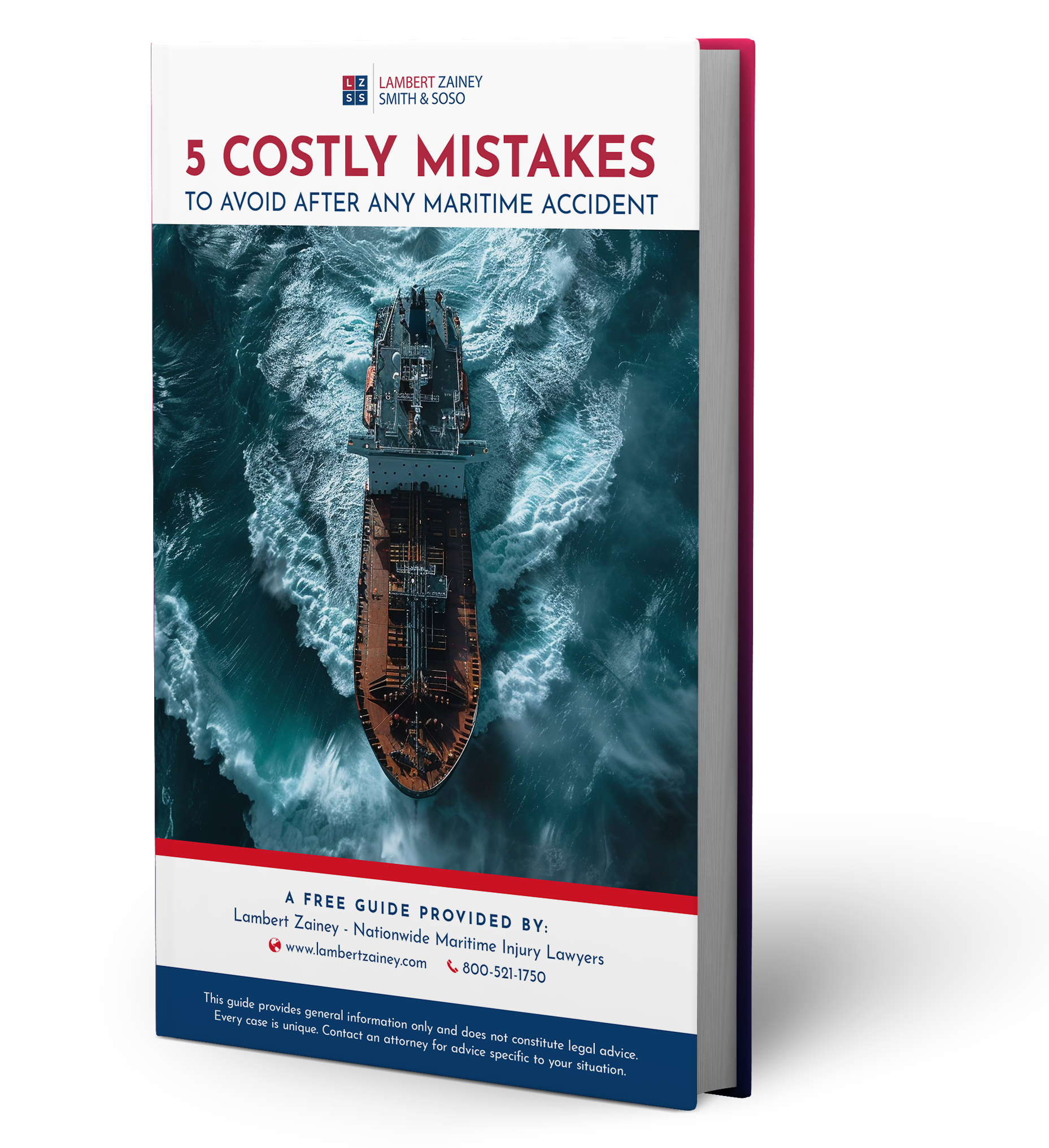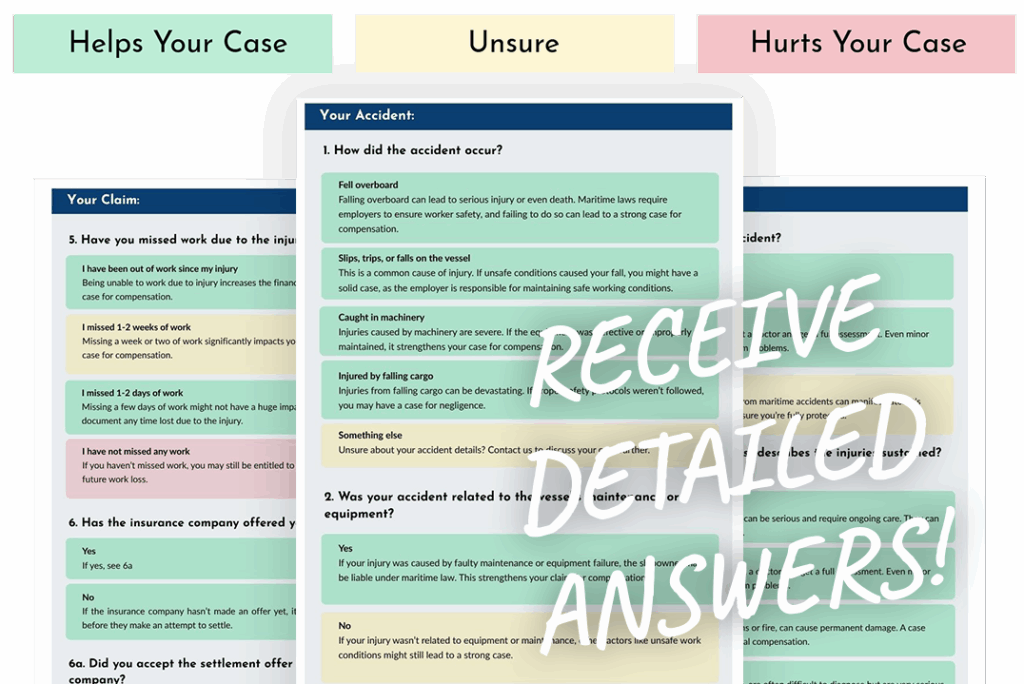If you are a maritime worker who has been injured in an on-the-job accident caused by the unseaworthiness of a vessel or the negligence of a vessel’s owner, captain or crew, you have a right to seek compensation for your damages by filing a claim under the Jones Act. Depending on the circumstances, you may be able to collect compensation for the pain, suffering, medical bills and financial losses caused by your injuries.
Although it is their right under the law, some workers who have been injured in accidents that were the result of the negligent actions of another choose not to pursue legal action against the responsible party because of a fear of reprisal by their employers. They are concerned that by taking legal action against an employer – even when they have a legal right to compensation for their injuries – they will be labeled a “troublemaker” and find themselves on a “blacklist” and unable to get employment in the maritime industry.

This idea is that the “blacklist” is used by companies to identify and deny employment to people who have either had a serious maritime accident or they have made a maritime injury claim against a former employer.
Is There Even a Blacklist of Injured Offshore Workers?
The offshore injury attorneys at Lambert Zainey have been representing clients in a wide variety of maritime injury cases since the 1970s. During this time, we’ve encountered several clients who worried that filing a claim would not only result in their termination but also in being barred from any future employment in a similar occupation.
While we can’t say for certain whether any “list” is floating around among maritime employers, we have seen instances of employer retaliation against offshore workers who choose to exercise their legal rights.
However, we feel strongly that this should NOT be a deciding factor in pursuing your right to compensation after a maritime injury. There are laws that protect seamen and other maritime workers from being blacklisted, and the courts have ruled (in Pino v. Protection Maritime Insurance Company and other cases) that blacklisting or blackballing offshore workers is illegal. In addition, when asked for a reference, past employers are not legally permitted to discuss the fact that you filed a claim against the company.
Your employer is also not allowed to fire you for exercising your rights under maritime law. If you are fired after filing a Jones Act claim despite being physically able to return to work, you have may be able to file a wrongful termination lawsuit.
Fighting Back Against Maritime Retaliation
Instability in the offshore industry has had at least one unexpected effect on maritime workers: It has made many them far less likely to overlook employers’ failures in following safety and environmental laws and regulations.
More workers than ever before are “doing the right thing” when it comes to safety violations and not just looking the other way. Reporting violations of the law (whether it relates to an injury claim, environmental contamination, or safety protocol issues) is a right that is protected by federal and state laws. If your employer fires you despite that protection, the maritime attorneys at Lambert Zainey can help you fight back.
Get Our FREE Guide to Protect Your Claim
What you do after an accident is critical. Insurance companies will try to get you to make mistakes that can hurt your claim. Our free guide can help you avoid these traps.
Download our complimentary guide: “5 Costly Mistakes to Avoid After Any Maritime Accident” to arm yourself with the knowledge you need to protect your rights.
An Experienced Offshore Injury Lawyer Will Protect Your Rights
Don’t let the fear of being blacklisted prevent you from filing a maritime injury claim. It is your legal right to seek compensation for the damages resulting from an accident that was someone else’s fault.
If you have been injured while working offshore, you have a right to seek compensation for your injuries without fear of reprisal. The New Orleans maritime injury lawyers at Lambert Zainey are here to protect your rights and get you the compensation you deserve. Call Lambert Zainey today to schedule a free, confidential meeting with one of our Jones Act attorneys. We’re headquartered in New Orleans but represent maritime workers injured in accidents all over the Gulf Coast and on America’s inland waterways.
If you are a maritime worker who has been injured in an on-the-job accident caused by the unseaworthiness of a vessel or the negligence of a vessel’s owner, captain or crew, you have a right to seek compensation for your damages by filing a claim under the Jones Act. Depending on the circumstances, you may be able to collect compensation for the pain, suffering, medical bills and financial losses caused by your injuries.
Although it is their right under the law, some workers who have been injured in accidents that were the result of the negligent actions of another choose not to pursue legal action against the responsible party because of a fear of reprisal by their employers. They are concerned that by taking legal action against an employer – even when they have a legal right to compensation for their injuries – they will be labeled a “troublemaker” and find themselves on a “blacklist” and unable to get employment in the maritime industry.

This idea is that the “blacklist” is used by companies to identify and deny employment to people who have either had a serious maritime accident or they have made a maritime injury claim against a former employer.
Is There Even a Blacklist of Injured Offshore Workers?
The offshore injury attorneys at Lambert Zainey have been representing clients in a wide variety of maritime injury cases since the 1970s. During this time, we’ve encountered several clients who worried that filing a claim would not only result in their termination but also in being barred from any future employment in a similar occupation.
While we can’t say for certain whether any “list” is floating around among maritime employers, we have seen instances of employer retaliation against offshore workers who choose to exercise their legal rights.
However, we feel strongly that this should NOT be a deciding factor in pursuing your right to compensation after a maritime injury. There are laws that protect seamen and other maritime workers from being blacklisted, and the courts have ruled (in Pino v. Protection Maritime Insurance Company and other cases) that blacklisting or blackballing offshore workers is illegal. In addition, when asked for a reference, past employers are not legally permitted to discuss the fact that you filed a claim against the company.
Your employer is also not allowed to fire you for exercising your rights under maritime law. If you are fired after filing a Jones Act claim despite being physically able to return to work, you have may be able to file a wrongful termination lawsuit.
Fighting Back Against Maritime Retaliation
Instability in the offshore industry has had at least one unexpected effect on maritime workers: It has made many them far less likely to overlook employers’ failures in following safety and environmental laws and regulations.
More workers than ever before are “doing the right thing” when it comes to safety violations and not just looking the other way. Reporting violations of the law (whether it relates to an injury claim, environmental contamination, or safety protocol issues) is a right that is protected by federal and state laws. If your employer fires you despite that protection, the maritime attorneys at Lambert Zainey can help you fight back.
Get Our FREE Guide to Protect Your Claim
What you do after an accident is critical. Insurance companies will try to get you to make mistakes that can hurt your claim. Our free guide can help you avoid these traps.
Download our complimentary guide: “5 Costly Mistakes to Avoid After Any Maritime Accident” to arm yourself with the knowledge you need to protect your rights.
An Experienced Offshore Injury Lawyer Will Protect Your Rights
Don’t let the fear of being blacklisted prevent you from filing a maritime injury claim. It is your legal right to seek compensation for the damages resulting from an accident that was someone else’s fault.
If you have been injured while working offshore, you have a right to seek compensation for your injuries without fear of reprisal. The New Orleans maritime injury lawyers at Lambert Zainey are here to protect your rights and get you the compensation you deserve. Call Lambert Zainey today to schedule a free, confidential meeting with one of our Jones Act attorneys. We’re headquartered in New Orleans but represent maritime workers injured in accidents all over the Gulf Coast and on America’s inland waterways.









